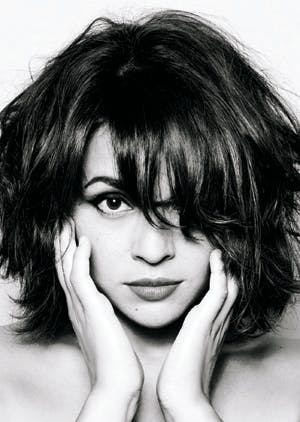
Norah Jones was a star from the word go; her 2002 debut album of jazz-pop balladry, Come Away With Me, sold in excess of 20 million copies. Yet rather than spend the rest of her career repeating the formula, Jones has grown into a curious musical adventurer. Her latest project, LITTLE BROKEN HEARTS (Blue Note), is an album of modern electronic pop, produced and co-written by Brian Burton a.k.a. Danger Mouse, who is best known as one half of the duo Gnarls Barkley.
The benefits are obvious, but what are the downsides of overnight success?
I don’t want to sound like I’m complaining, but I felt overwhelmed; it brought a lot of stress. I feel like I’ve spent the last eight years shedding all that. If I just do what I love, I’ll either be lucky with it or not. It was a matter of realizing that I wasn’t always enjoying myself. What’s the point otherwise?
I doubt anyone imagined you would end up recording with everyone from Willie Nelson to André 3000 [of the hip-hop group OutKast]. How did you get there?
I just got phone calls—Ray Charles wants to sing a duet? Oh, amazing! [Former Nirvana drummer] Dave Grohl wants you to sing on the new Foo Fighters record. Okay!
You came from a jazz background. These were new directions for you.
I don’t think I collaborated with anyone that I didn’t know and already respect. I’d heard of OutKast and I liked them, and I grew up on Nirvana—I was totally air-drumming to Dave Grohl when I was thirteen. Later, I was a jazz snob in high school, and I didn’t listen to anything else, but I was still adventurous.
You met Brian Burton when you sand on his Rome project [a tribute to spaghetti western sound tracks]. Why did you feel you could make an entire album with him?
We get along really, really well. We’re similar; we both show up on time, and we both want to end by dinner and go eat. We’re serious but don’t want to spend fourteen hours a day in the studio. There was no drama. To make a two-month commitment was easy because i knew we worked together so well.
You came to the studio with no songs, just a notebook of lyrics?
Yeah, just a couple of lines here and there. We wrote everything together—the lyrics, the music. It’s like building a paper-mâché house, you know? You add things here, you take away things there, and you keep at it until it becomes something, but you don’t really know what it’s going to look like until you’re done. Brian had tons of old analog keyboards, drums, guitars. Some songs we would start with a weird organ part, or him playing drums and me playing keyboard bass, or me singing gibberish over a guitar he was playing. Each song kind of happened in a different way.
You strike me as a meticulous planner. This was a very different experience for you.
Yeah, I’m picky. I go in with songs usually. But I don’t know how things are going to sound. I know how I want them to sound, but things rarely happen exactly how you envisioned them. That’s what I like about playing with other musicians; otherwise I would probably just learn how to play everything myself. Brian and I both had the same attitude going in: Neither of us had any expectations. We were like, “Okay, if either of us isn’t happy, it’s over. Deal?”
This is a breakup record.
Yeah. It was really fun to write these songs, even though they’re kind of dark.
I don’t get the sense that you fret a lot about your fans following you from one move to the next.
I don’t. I love my fans and respect them, but I think people are going to either want to hear something new or want to hear the first record over and over again. What are you going to do?






